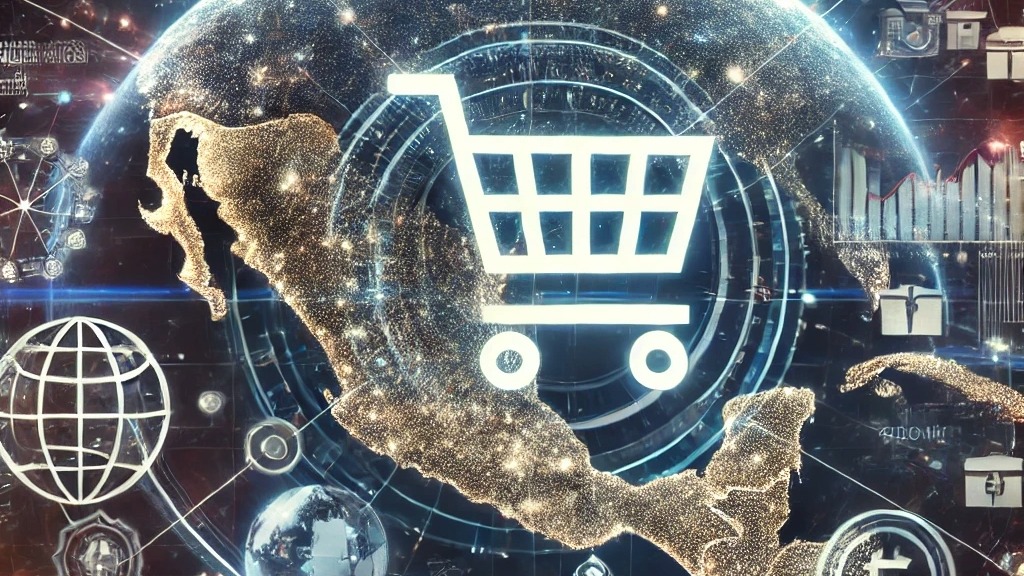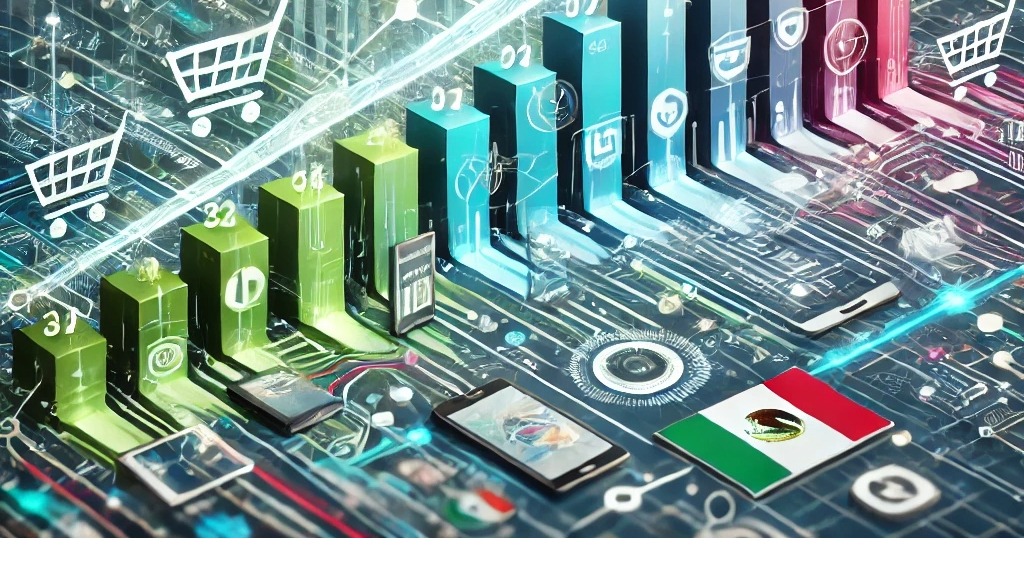Mexico leads global growth in online sales

Mexico has experienced remarkable growth in e-commerce, standing out globally as the country with the greatest advance in this sector during 2023, with an increase of 24.6% year-on-year.
This achievement positions the country above other emerging markets such as the Philippines and Malaysia, reflecting a favorable environment for the development of online sales, according to figures from the Mexican Online Sales Association (AMVO).
The total value of the online sales market amounted to 658 billion pesos in 2023, and has maintained steady growth for five consecutive years, driven by the digital transformation that gained momentum in the wake of the pandemic.
The expansion of digital commerce in Mexico can be interpreted as a reflection of several inherent strengths of the Mexican market. Among these is the size of its young population, which is quick to adopt new technologies and digital platforms. This generation of digital consumers values convenience and speed, factors that have driven the growth of online sales.
The modernization of the logistics infrastructure and the strengthening of the electronic payment offer are also key pillars to consolidate this progress.
The growing confidence of Mexican consumers in online shopping has created a favorable environment for companies to expand their presence in the digital market.
This growth of e-commerce in Mexico represents an accessible platform for SMEs looking to expand beyond their traditional borders.
Barriers to entry into online commerce are considerably lower compared to physical sales channels, allowing local businesses to compete more fairly with large corporations.
Digitalization also opens the door to foreign investment and strategic alliances, positioning Mexico as a hub for online commerce in Latin America. In addition, its geographic proximity to the United States strengthens the country's attractiveness as a strategic destination for the expansion of e-commerce platforms, as it facilitates access to the North American market.
The digital divide remains a significant barrier. Although internet access has improved, there is still a considerable disparity between urban and rural areas, which limits the reach of e-commerce in certain regions of the country. In addition, Mexican companies must work on improving the user experience and optimizing their digital channels, as global competition in e-commerce imposes high standards in terms of convenience, security and personalization.
Logistics, although evolving, still faces challenges related to timely delivery in remote areas, which can affect customer satisfaction.
The rapid adoption of digital platforms has been accompanied by an increase in cybersecurity-related risks. The growth of e-commerce has attracted the attention of cybercriminals, increasing the pressure on companies to protect their customers' sensitive data.
International competition also poses a threat, as large global platforms have the resources to dominate the market, which could displace local players if they fail to adapt quickly to new trends and consumer demands.
Mexico continues to lead the growth of e-commerce worldwide, thanks to a number of key factors that have favored its development. However, for this growth to be sustainable, companies need to address existing weaknesses and prepare for emerging threats in an increasingly competitive global environment.
The potential for further expansion of digital commerce is immense, and the country is positioned as a key player in the region, with a significant opportunity to consolidate itself as an attractive market for investments in technology and e-commerce.
Collaboration: Editorial Auge.





